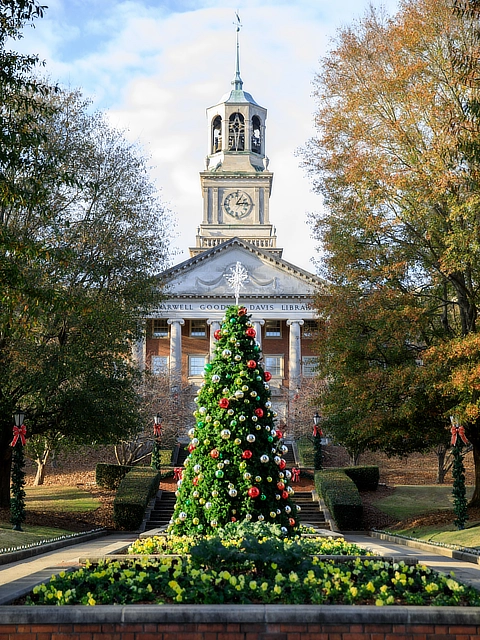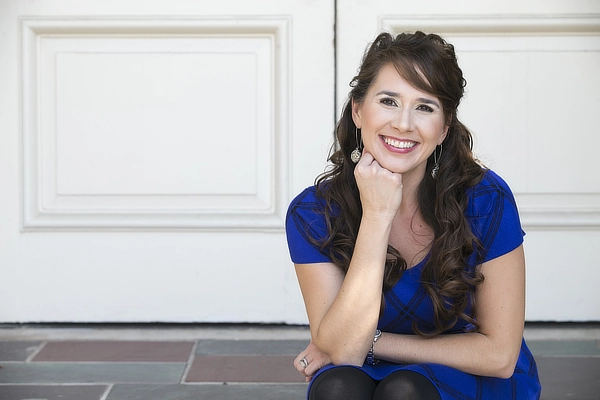
While writing this reflection, we’ve just completed the first of what I know will be several batches of homemade cookies with ALL the decoration fun (mess!) with the kiddos, the “winter walk” candle is lit, and I’m smiling because Alexa is playing “All I Want for Christmas is You”—and all before Thanksgiving! NPR tells me I’m not alone, though, in celebrating the season early. Our favorite Mariah song has apparently made the U.K.’s “Top 40” earlier than ever before. 😉
Certainly, these moments contribute to the rich texture and warmly symbolic stirring of hope and promise that is central to the season. Especially with my little ones, I’m hearing the story anew, witnessing it all through their wide eyes and with an imagination that is running wild. And as we’re cozied up to the delicious smells and festive sounds of the merry-hearted season, it’s actually easy to sense, at least for a moment, that we’re #blessed, that all is well in the world.
But that’s only for a moment. Because most of the time, instead of experiencing the hap-happiest-season-of-all, it feels like the busiest time of the year. My family has more social outings, worship gatherings, service opportunities, and seasonal events than we have time on our calendars for. All good times, to be sure, but combined together, have a way of distracting me, becoming overwhelming. Instead of being present in the moment, I find myself attempting omnipresence, only to very soon realize I am no superhero.
And once again, it hits me. I’m face to face with the countercultural, out of season realness that is Advent. This is the Advent Christ’s call beckons me toward. It’s opening myself to the reality that, actually, all is not well in the world. We’re sitting here in the in between. We’re waiting. We’re wondering. Is this merry moment for real? Advent is the season we need all our days because we’re a forgetting people. It’s far easier, actually, to live in the celebration of consumerism, hiding away the uncomfortable parts of our lives, even as we sense them simmering just under the surface. In all our days we face these moments of waiting. Hoping. Will it ever be true?
Advent invites us to live in the real world, not to escape from it, the one that longs for the promise of much more than the Hallmark movie arc. And by living in the real-world Advent, we may be graced to (re)discover the true virtues of the season, the ones that can support our real-life journeys year-round:
- The hope that comes, not triumphantly, but in the form of a vulnerable, poor baby born in a dark, cold stable.
- The peace offered as profound gift, even amid a world on fire.
- The joy of God’s empowering presence, especially encountered in the lowest places of our lives and our world.
- The love that invites us to love our neighbors—even the stranger—as ourselves.
May we be people of the real-world Advent, even as we join the seasonal celebrations our culture offers. And as we walk down the Advent road, may we participate in not just the other-world Heaven, but the Emmanuel one of this very moment. What if this season prompted us to echo some form of Mary’s humble openness and acceptance? The fourteenth-century German mystic Meister asked, “What is the good if Mary gave birth to the Son of God two thousand years ago, if I do not give birth to God today? We are all Mothers of God, for God is always needing to be born.” May we, like Mary, respond with openness, “Yes, God, I see you at work. I’m ready. Let it be with me just as you say.”
Additional CWA Advent articles:
I Shall Know Him When He Comes (Abbey Plant, 2022)
Welcoming in the Advent Season (Wen Reagan, 2000)
 Emily Snider Andrews, PhD, is Assistant Professor of Church Music and Worship Leadership and Executive Director of the Center for Worship and the Arts at Samford University. She believes worship lies at the heart of what it means to be a Christian disciple and seeks to enable Christ’s church to worship with godly wisdom and Spirit-led imagination. An ordained minister, Emily has served congregations in Alabama, Texas, and California. She is especially interested in the interlacing of music and theology, focusing her research on evangelical worship, sacramental theology, and modern worship music practices. She is married to Matt, a minister, and is mother to Elliot, Olivia, and Henry.
Emily Snider Andrews, PhD, is Assistant Professor of Church Music and Worship Leadership and Executive Director of the Center for Worship and the Arts at Samford University. She believes worship lies at the heart of what it means to be a Christian disciple and seeks to enable Christ’s church to worship with godly wisdom and Spirit-led imagination. An ordained minister, Emily has served congregations in Alabama, Texas, and California. She is especially interested in the interlacing of music and theology, focusing her research on evangelical worship, sacramental theology, and modern worship music practices. She is married to Matt, a minister, and is mother to Elliot, Olivia, and Henry.
